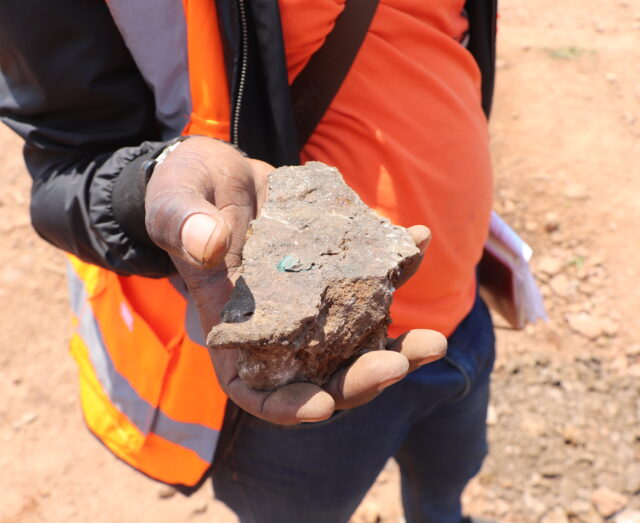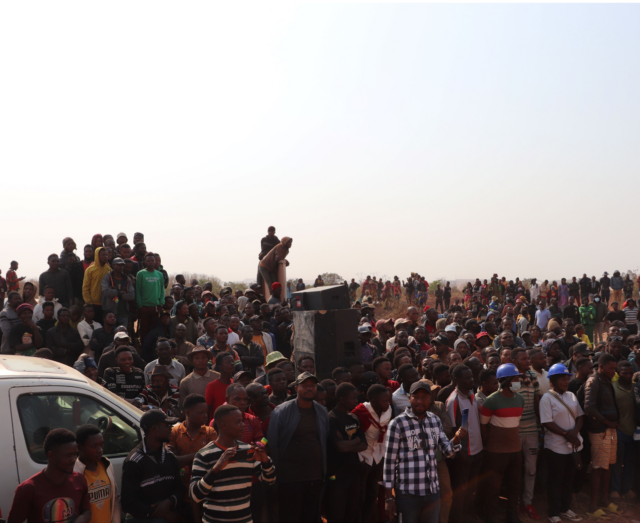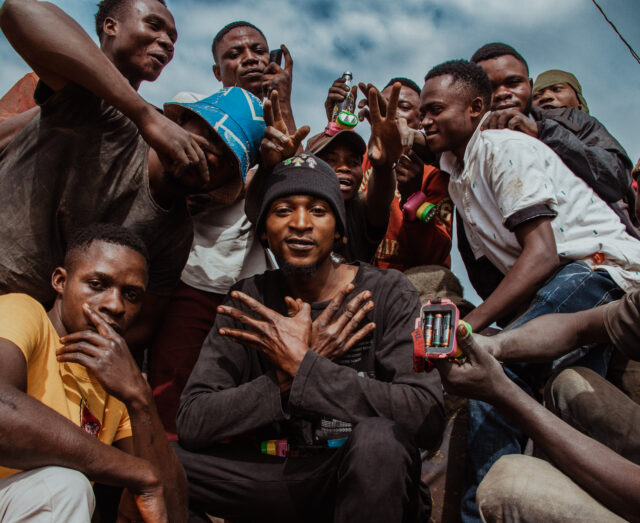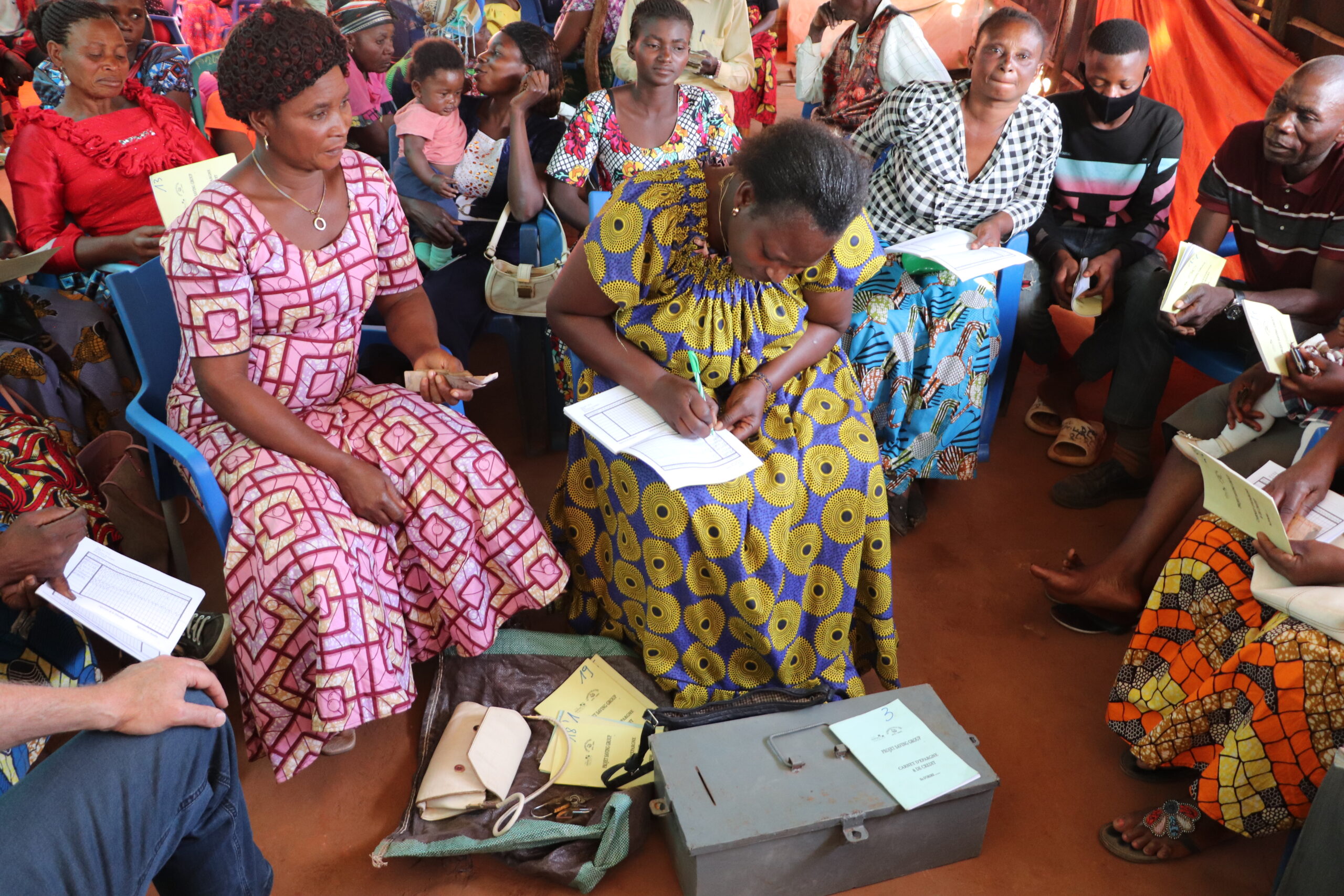FCA Quarterly - Q2 2022
In the second quarter of 2022, the FCA has made considerable progress in its efforts to support the transformation of the artisanal cobalt sector in the DRC. After a thorough recruitment process, we are excited to welcome to our team Alex Deprez, the new Country Director for the FCA. Leveraging more than two decades of experience working in the country, Alex is based in Kolwezi, where he will lead our staff’s on-the-ground activities.
Alex has decades of experience managing development, investment, trade and value chain projects, mainly in Africa. He has specifically led strategic planning, budgeting and monitoring during his tenure at USAID. During his youth, he served as a member of the Peace Corps member, a situation that first brought him to the country.
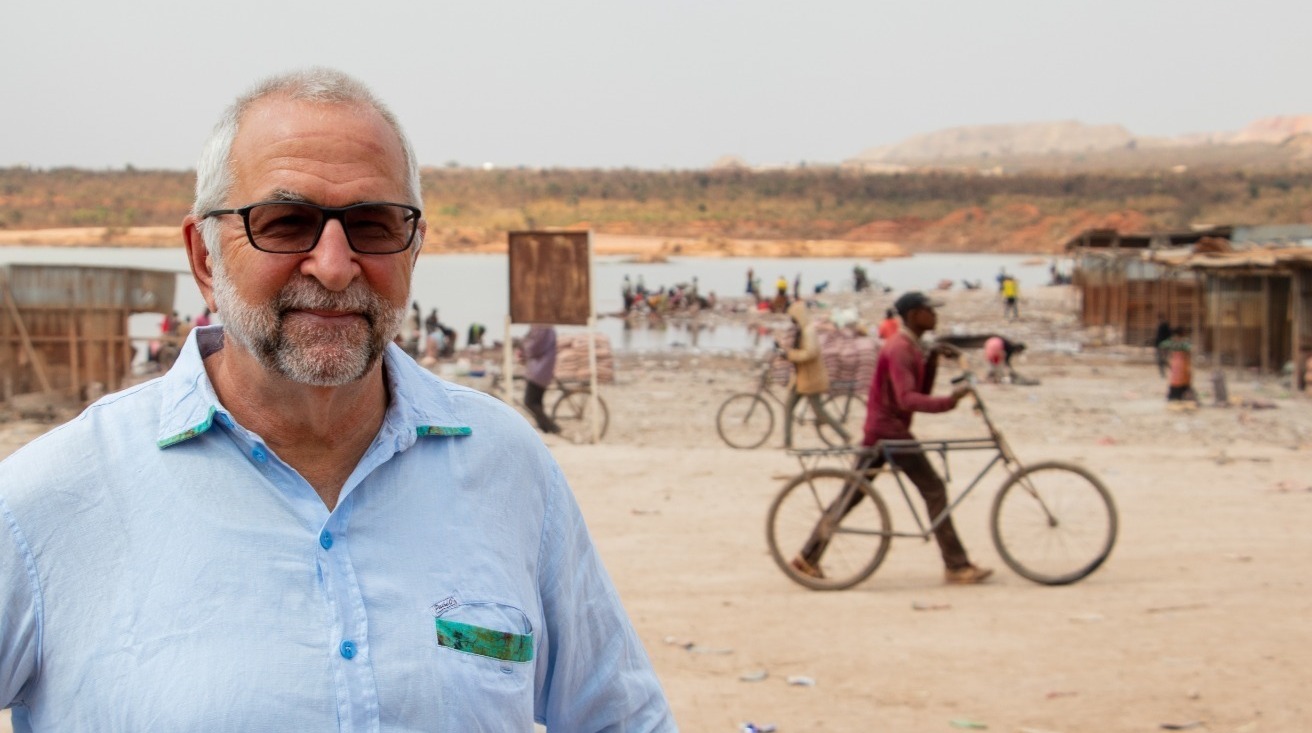
Alex Deprez, FCA New Country Director
Noteworthy developments
New Lualaba Minister of Mines
The interim Governor of Lualaba province issued a decree in May reshuffling the provincial government leading to the appointment of 10 new ministers, including a new Minister of Mines called Jacques Kaumba Mukumbi. This appointment is positive for the ASM sector because Mr Kaumba is a former artisanal miner and the current president of COMAKAT, one of the ASM cooperatives in the region.
EGC Monopoly Revoked
A subsidiary of the state mining company Gecamine, EGC’s (Entreprise Générale du Cobalt) monopoly to purchase artisanal cobalt set in 2019 was revoked in May at Mining Indaba by the National Minister of Mines Her Excellency Antoinette N’Samba Kalambayi. Although the decision does not bar EGC from operating as a private company under Gecamines, this development opens up the formal trade of the mineral to multiple initiatives, a positive development for the artisanal cobalt space.
DRC Mining Week
The FCA team participated in the DRC mining week from 1 – 3 June. The FCA had a booth at the event and participated in the panel discussion, which focused on “The central role that the DRC is expected to play in the energy transition and strategies to stay in the global EV competition”. The DRC Mining Week allowed the team to engage with potential partners and for the new country director to meet relevant stakeholders, including the coordinator of CTCPM and member of the FCA Advisory board, Paul Mabolia. Representing the Ministry of Mines, meeting the coordinator presented an opportunity for the team to highlight the importance and need to legalise ASM sites, including our partner site in Kamilombe.
Achieving tangible impact in artisanal cobalt mining communities
We are proud of the progress achieved by our partners and our team on the ground.
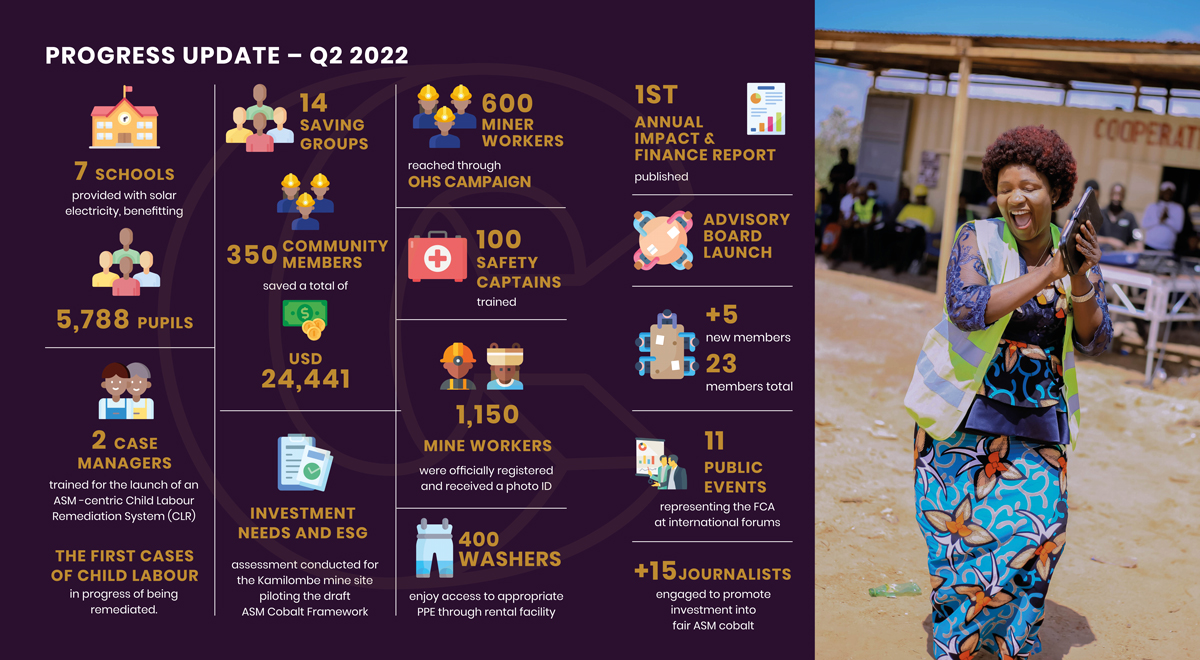
In collaboration with our partners, we have been able to make progress across different activities as highlighted above.
In this section, we highlight our team’s activities in realising our goals, separated into five workstreams geared towards improving the ground conditions of artisanal miners.
Mine site expansion and legalization support
The local FCA team has worked with the partner mine Coopérative Minière pour le Développement Social (CMDS) to develop a plan of approach regarding the legalisation and transformation of the Kamilombe site to a small-scale mine permit (PEPM). We are working out which legal requirements are necessary to apply for the PEPM and the best way to reach these requirements. In addition, we are in the process of hiring an external lawyer who will aid us in the process.
 Enabling safe and dignified working conditions
Enabling safe and dignified working conditions
PPE distribution
The FCA launched the PPE distribution project in partnership with the Women Miners Association and the CMDS mining cooperative at the Kamilombe mine site. Under this programme, wader boots are provided to the washerwomen through daily-hire to ensure their safety during ore washing. Pursuing a gradual rollout to ensure an organic uptake of the offering, the facility currently holds sufficient stock to reach 400 women daily. Over time tthis capacity will be increased to about 600, aiming to serve all washers at the site.
While the initiative was welcomed, we are yet to find the best model to optimise its potential. Our team is actively collecting feedback on how to make the system fit its purpose, as concerns around hygiene and desires for individual ownership have come up. Find out more about this programme here.

Washerwomen often work in conditions similar to that pictured above. Often working long days, the hazardous nature of their work often exposes them to infections from the exposure of their skin to heavy metals in the water
OHS awareness campaign
In April, CMDS and FCA jointly hosted the first quarterly occupational health and safety awareness-raising campaign, where approximately 600 people were in attendance. The local theatre group SKM entertained those present with sketches on different OHS topics, emphasizing the importance of PPE use at the mine site.
Mine Investment Plan
An ASM specialist and mining engineering professor developed a mine investment plan for the Kamilombe mine site. Pending the review of the report from the FCA OHS committee, the plan is meant to serve as a basis for project-specific fundraising and enables partners and members to invest in-kind in specific projects.
Registration of mine workers
CMDS has identified and registered 1150 miners and washers. The target is to register all mine workers gradually. Over time the cooperative is looking to make photo IDs obligatory to enter the mine site. The PPE hiring system already requires women to have a card to participate.
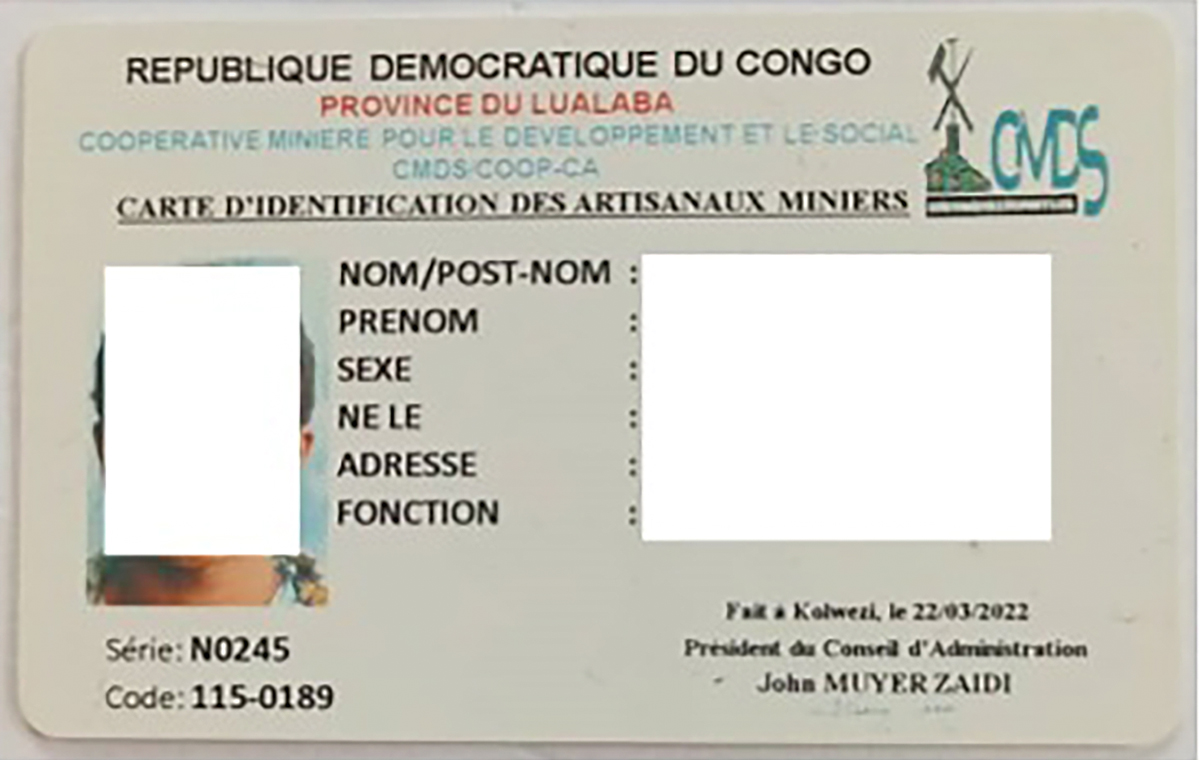
Registered mine workers receive a cooperative membership card, facilitating identification and access control. The next step is a well-working access control system at the entrance of the mine site.
Safety captains
24 additional safety captains were trained in a first aid training course held in June, bringing the total number of captains trained to 100. Fully trained, these safety captains will train their fellow mine workers on first aid principles to provide primary care in an emergency, which sometimes can be the difference between life and death at artisanal mine sites.
Child labour remediation
The FCA and its partners take a child’s right-centric approach, committing to support the children until they reach the age of 16 regardless of their age at the point of identification. This ensures that they benefit from the necessary psychosocial, health, and educational support and alternative care where necessary.
Case managers
Steering Committee members, The Centre for Child’s Rights and Business and Save the Children have worked with Maison Kwetu and Maison Mapendu to further collaborate on case management and cooperation with the mining cooperatives. A financial expert has been training the teams of Maison Kwetu and Maison Mapende to increase their financial management capacity. These local case managers have been selected to help identify children working at mine sites, onboarding them into a long-term child labour remediation programme.
The FCA is working with Save the Children to raise additional public funding to provide multi-year support for the child labour remediation system and the broader need to reduce child labour.
Mine site referral
The child labour remediation system was rolled out at the Kamilombe mine site, starting with a workshop organised by the FCA, Save the Children, and The Centre for Child’s Rights and Business to introduce the system to CMDS. The cooperative was empowered on how to refer children found working at the mine site to receive support. As a result, three children so far have been identified and are currently being remediated.

Raising worker incomes
The first evaluation report for Q1 of the savings group project being implemented by AFA was done. Data gathered from this report and questionnaires answered by the participants will establish a baseline to be leveraged for the project’s development. A total of $24,441 has been saved by the 350 miners spread across 14 groups, an increase of more than $20,000 from the first quarter.

Achieving market acceptance of Fair ASM Cobalt
The FCA team conducted a first pilot assessment of the Kamilombe mine site against the draft ASM cobalt framework, recently published by the RMI. This assessment provides a baseline for creating a mine-specific continuous improvement plan to enable the responsible production of artisanal cobalt.
Creating an enabling environment
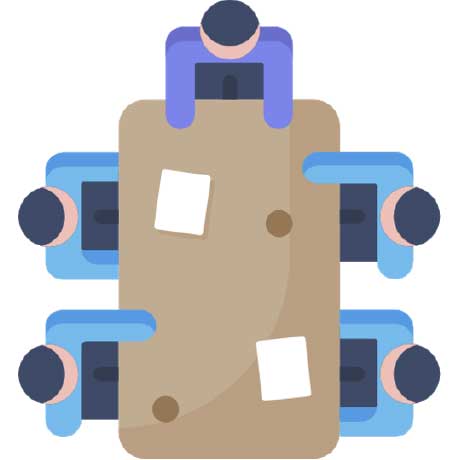
FCA governance & member engagement
The FCA held its first inaugural advisory board meeting on April 8th with members from different public and private sectors. The board’s purpose is to guide overall strategy and approach, provide technical expertise to the programmatic scope, and support stakeholder engagement and outreach. We are grateful for the support of our esteemed members of the Advisory Board.

Outreach, Fundraising & Recruitment
To raise awareness of our work, the FCA team has participated in a few conferences, including the OECD side session, the 2022 Responsible Raw Materials conference, the 2022 Stockholm Forum on Peace and Development, the Cobalt Institute Conference in Zurich, the DRC Mining weeks and Africa’s biggest mining conference, the annual Mining Indaba held in Cape Town.
Relevant blogs and publications
- Fair Cobalt Alliance Guest Blog | May 16 | ASM for the prospect of better lives for themselves and their families
- LinkedIn | May 14 | The transition to a green economy is the advent of a new minerals age – so why does mining have such a bad reputation?
- S&P Global | May 30 | On responsible cobalt from DRC, industry needs to ‘put its money where its mouth is’
- Mining Review Africa | June 22 | Fair Cobalt Alliance – improving the image of cobalt’s ASM



